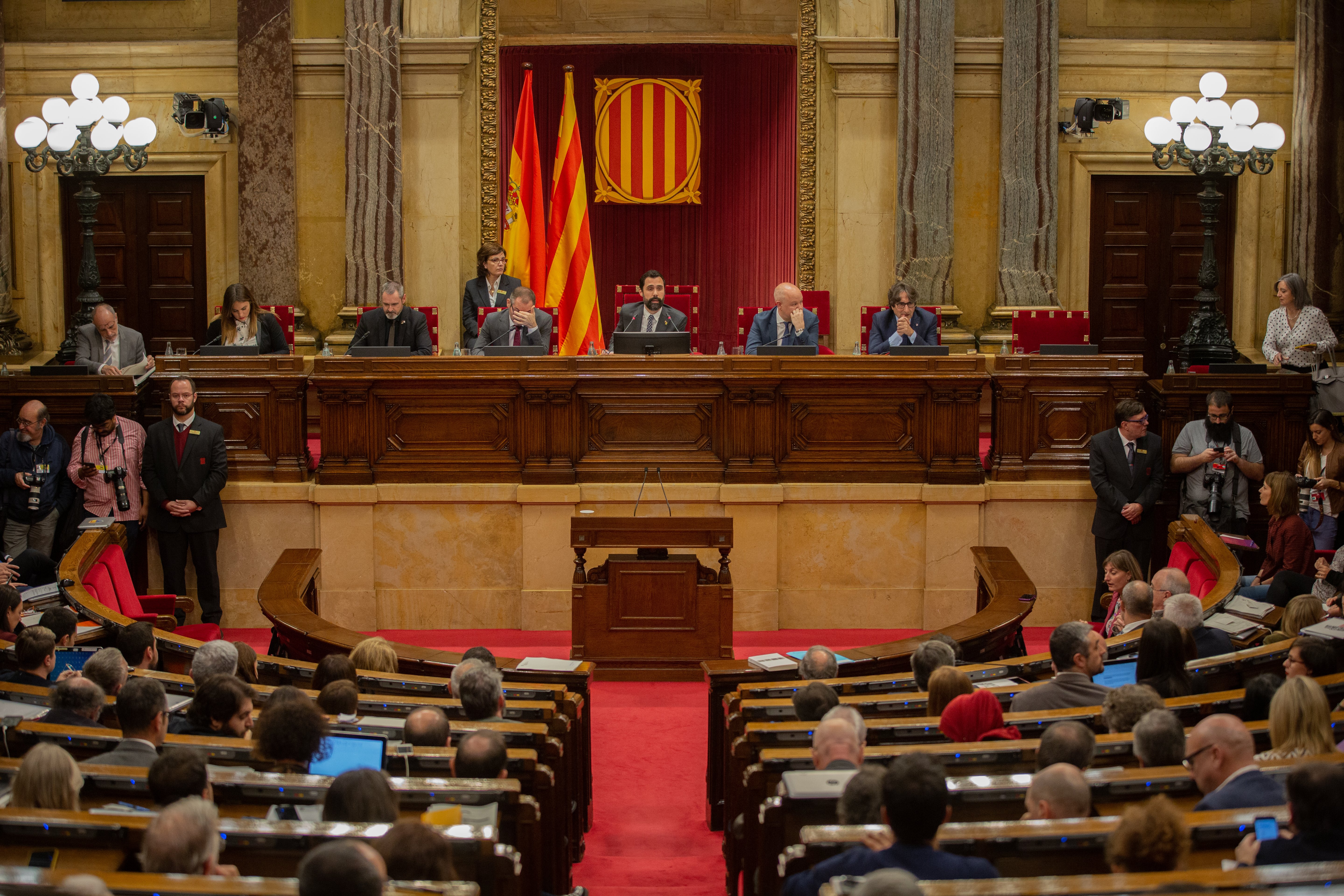Spain's Constitutional Court is leaving the Catalan Parliament ever less room for manoeuvre, further challenging the already difficult relations between the pro-independence parties. In successive orders, the court has warned members of the Parliament's governing Bureau that they are required to block any initiative similar to other previously suspended, specifically anything related to self-determination, the monarchy or sovereignty.
These three concepts all appear in the joint bill responding to the Supreme Court's sentences against pro-independence leaders passed this afternoon. JxCat, ERC and CUP all voted in favour in the end, En Comú abstained and PSC and PP voted against. Cs had walked out of the chamber for the vote. The text rejects the verdicts and demands the release of the prisoners and the return of the exiles.
The three parties have tried various strategies to get around the court's warnings. On 5th November, they annuled the section 11 of the document which said that deputies "reiterate and will reiterate as many times as they want their reprobation of the monarchy, their defence of self-determination and their claim of sovereignty" in response to appeals submitted by the Spanish government.
Looking to save the essence of the original draft, the parties presented a series of amendments, which were approved, trying different methods to recover its main thrust without falling foul of the court. So, for example, CUP and ERC expressed their "rejection of the suspension" of the section in question, quoting it word for word in the process.
Similarly, JxCat quotes that earlier overturned text as they "denounce the censorship in advance the Constitutional Court aims to impose on the Parliament of Catalonia". In a second amendment, they argue to be "able to debate and vote on the right to self-determination, the reprobation of the monarchy and the recognition of Catalonia's sovereignty and its right to decide".
Despite attempts being made to unify their various amendments, in the end the parties all submitted at least one each. They say this was to avoid helping the opposition's attempts to block them, as the individual amendments had already been approved for debate by the Bureau and they didn't want to start that process again with a new one. Commentators suggest it could also be related to disagreements between the parties and the difficulties to agree the original text in the first place.

